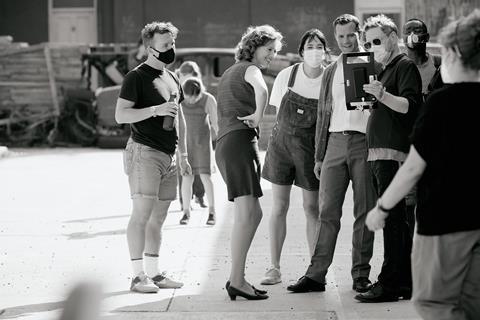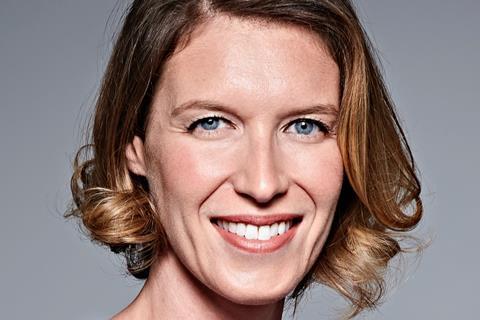
UK independent film and TV producers are facing uncertainty ahead of the publication of updated Covid safety guidelines by the British Film Commission (BFC) following the end of all legal Covid regulations in England as of today (February 24).
At the same time, an insurance broker is calling for a three-month extension to the government-backed Production Restart Scheme (PRS) until the end of July.
Screen understands the BFC, which has worked throughout the pandemic to provide up-to-date guidelines on best on-set practice in line with government adjustments, is reconvening its industry-wide working group to decide on recommended next steps for film and high-end TV set regulations, although it may take some weeks for the advice to be published.
“At the moment, producers are lacking clarity on how the end of the regulations will impact on their own obligations to make productions Covid secure,” said Nicky Bentham, producer of The Duke, founder and producer at Neon Films, and member of the council at film and TV producers’ organisation Pact.

“With testing and isolation no longer required within the general public, it will be harder to insulate film and TV sets,” she continued. “Productions may welcome a reduction in the extremely costly protocols, but the real concern is around insurance, and what options will be available if the PRS [Production Restart Scheme] closes for applications at the end of April, as it is currently scheduled to.
”It’s incredibly difficult for producers, especially those working in the independent space, to effectively budget and plan for shoots happening later in the year.”
As part of the government’s ‘living with Covid’ plan, the legal requirement to self-isolate upon a positive Covid result has been scrapped, although isolation is still advised, and free universal symptomatic and asymptomatic testing will also end for the general public in England from April 1.
Wales and Scotland have not yet followed suit, although isolation has never been a legal requirement in Scotland. Covid restrictions have not been legally binding in Northern Ireland as of February 15.
The BFC guidance suggests that positive cases should still isolate and it is expected that strict protocols will remain in place when the new guidelines are published.
Call for extension to PRS
Paul Hillier, director of media, film and TV at Tysers Insurance Brokers, a London-based company that provides advice on insurance and risk management for independent film and TV productions, believes an extension to the PRS scheme beyond April 30, when applications will close, is necessary.
”A final three-month extension on the PRS scheme, whilst producers find their way with restrictions ceasing, would be a useful solution,” said Hillier. ”By the end of the summer we should be back to a level of pre-Covid normality on productions, where commercial insurers may be able to offer some level of cover – with the comfort that the risk is low, the rates charged are fair and modest limits.”
Some producers would like to see a change to the strict protocols, and are hoping for a reduction in the currently high level of PPE costs. “That would be welcome, and important in redressing the imbalance between those productions that can afford the added costs and those that can’t,” said one UK producer. “Overall, it feels like a weight is being lifted. Some positive changes that came about because of Covid will persist, increased hygiene, empathy, wellbeing, and the unwelcome logistical challenges will vanish. We are also very well prepared to react fast if something like this [a Covid surge] happens again,” they added.
The BFC said that in the immediate term the guidance has been updated to reflect the changes to self-isolation requirements in parts of the UK.
“The BFC will, in due course, consult with our Covid-19 physical production working group on Government’s ’living with Covid-19’ plan in relation to the ’Working Safely During Covid-19 in Film and High-end TV Drama Production’ guidance,” said Adrian Wootton, CEO of the BFC and Film London.






![The Brightest SunScreen[Courtesy HKIFF]](https://d1nslcd7m2225b.cloudfront.net/Pictures/274x183/3/5/0/1448350_thebrightestsunscreencourtesyhkiff_312678.jpg)


















No comments yet